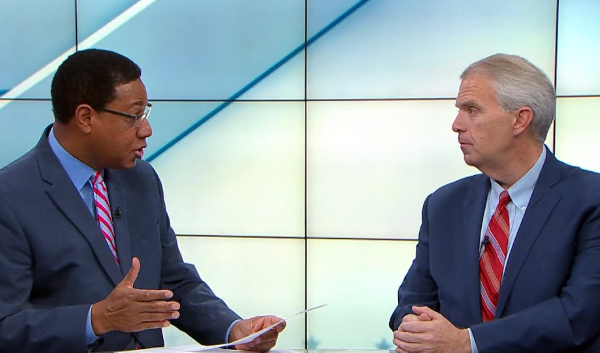With the Olympics postponed, Wimbledon canceled and no local and regional tournaments to cover, sports reporters are shifting their focus. Though there may not be events to report, there are still stories to be told.
“If you are able to tell stories, you should still be able to do your job,” says Norman Seawright, a sports anchor for WCCO-TV (CBS Minnesota).
Seawright says that he is now anchoring and reporting from home. His newsroom originally did not have a contingency plan for the sports department, so he is learning alongside his colleagues. In addition to putting the spotlight on the ways a football team may be giving back to the community or producing profile pieces on an athlete’s recovery from the virus, Seawright says many sports reporters are now covering the daily news related to COVID-19.
“The virus is our primary focus because we want to help our audience make sense of what is happening in the world,” says Seawright. “The balance in that is showing how the virus is changing and affecting the world but also showing how individuals are adapting and coping with these changes.”
As far as the long-term effects that COVID-19 will have on local TV sports, Seawright suggests that reporters can either choose to look at this with uncertainty or as an opportunity.
“The best thing I can do is some forward-thinking,” says Seawright. “I have been pushing into the esports world, which is competition in its own way.”
Seawright says that, more than anything, he is learning the importance of good reporting during this time. “We are learning to be more thoughtful in our reporting—especially when it comes to building our networks.”
The events surrounding COVID-19 may have a lasting effect on newsrooms and the sports industry itself. Seawright says it is teaching reporters to focus more on stories as opportunities to connect with audiences. It is also equipping reporters and anchors with a diverse set of skills that they can carry forward.
“It is more important than ever to be sure that you have a well-rounded skill set and that you are taking care of yourself,” Seawright says.
With or without sports, a good reporter will be able to strike this balance and connect with audiences, he says. Viewing this time as an opportunity will allow reporters to hone their craft and prepare for the stories that lie ahead.
Norman Seawright graduated with a degree in broadcast journalism from the University of Mississippi School of Journalism & New Media. He’s a rabid Ole Miss football and baseball fan—his entire family attended (and his dad was a receiver for the Rebels).









2 Comments
Great Story. His mother and I are so proud of Norman and the opportunities of which he has taken advantage. Thanks to the University of Mississippi for the superb foundation!!!
As they should be!